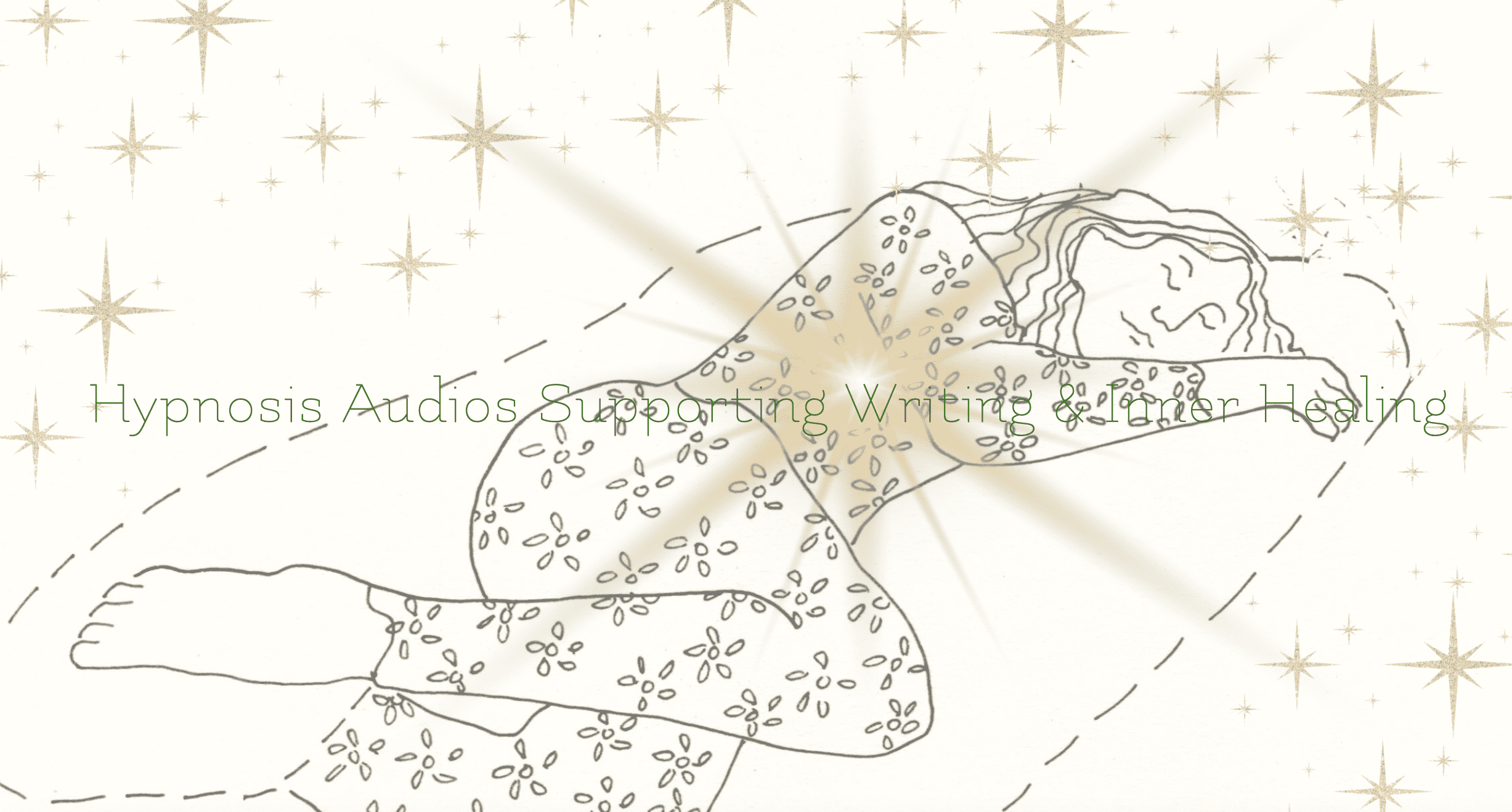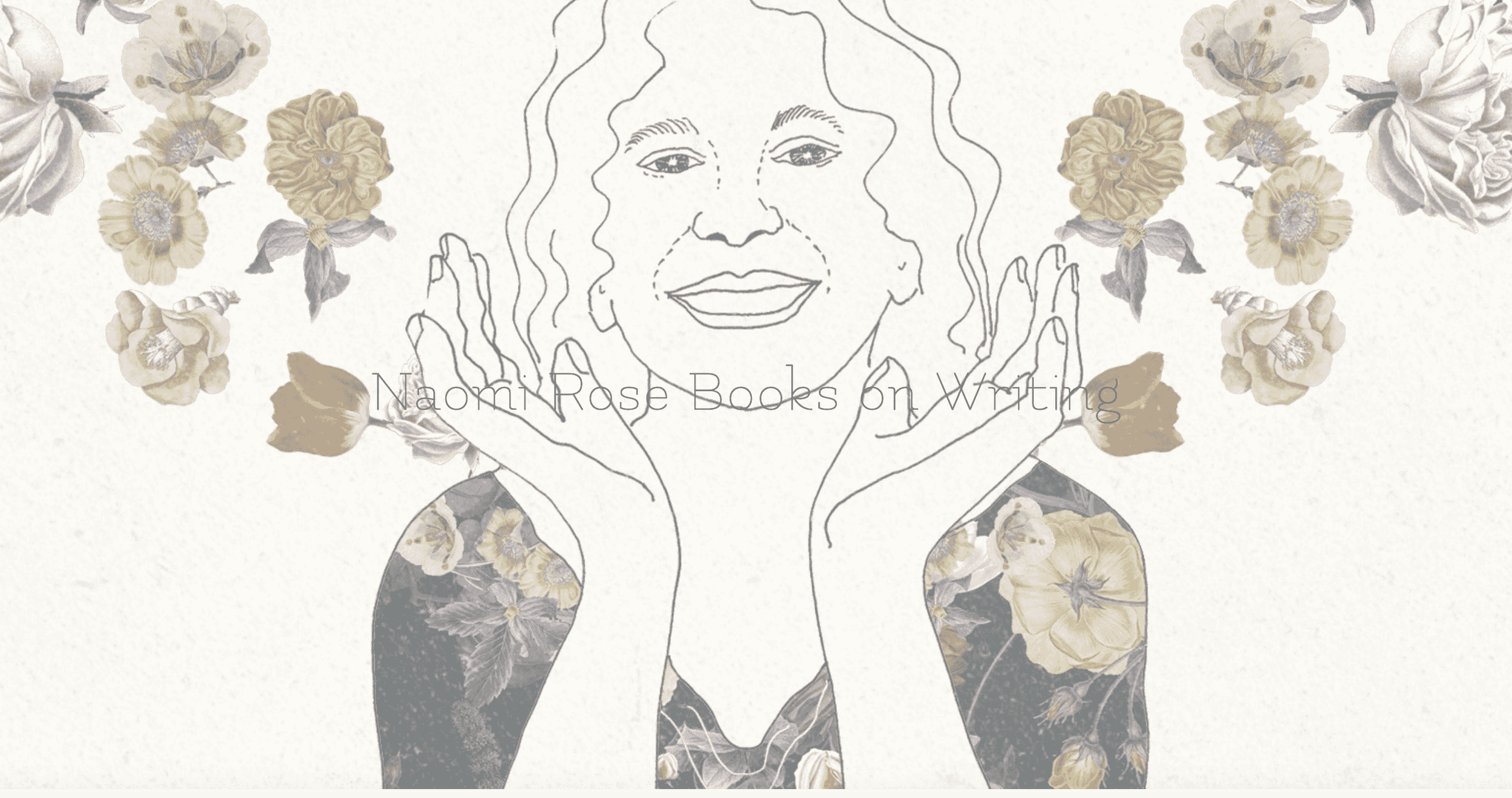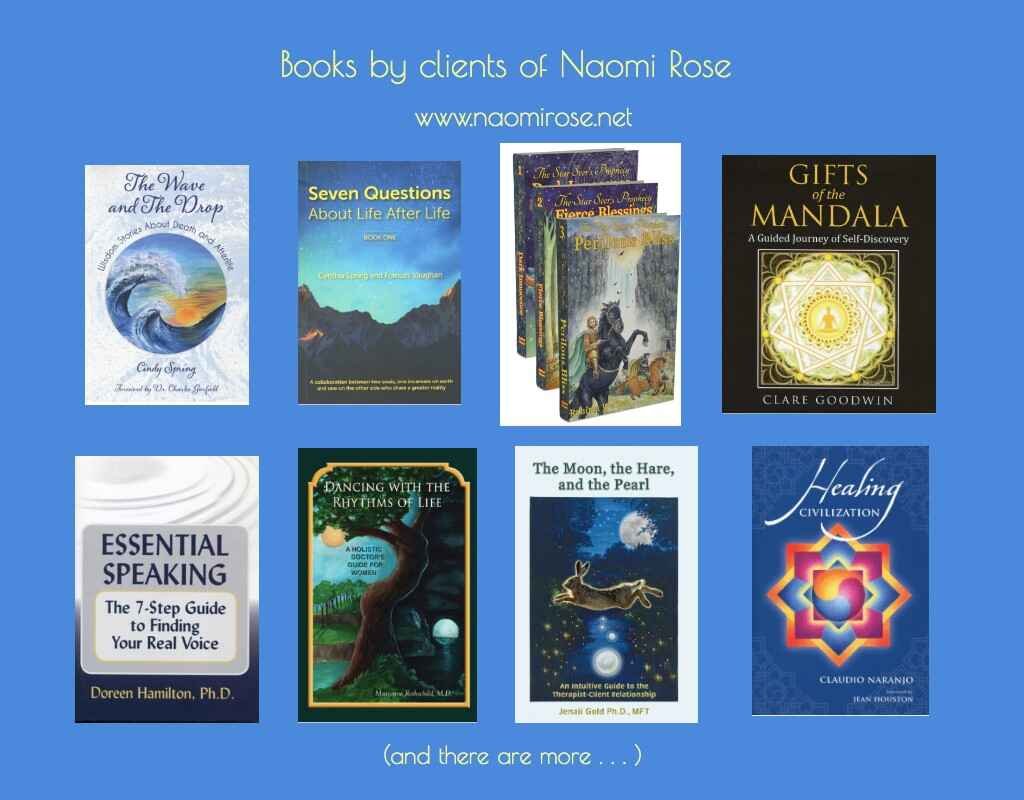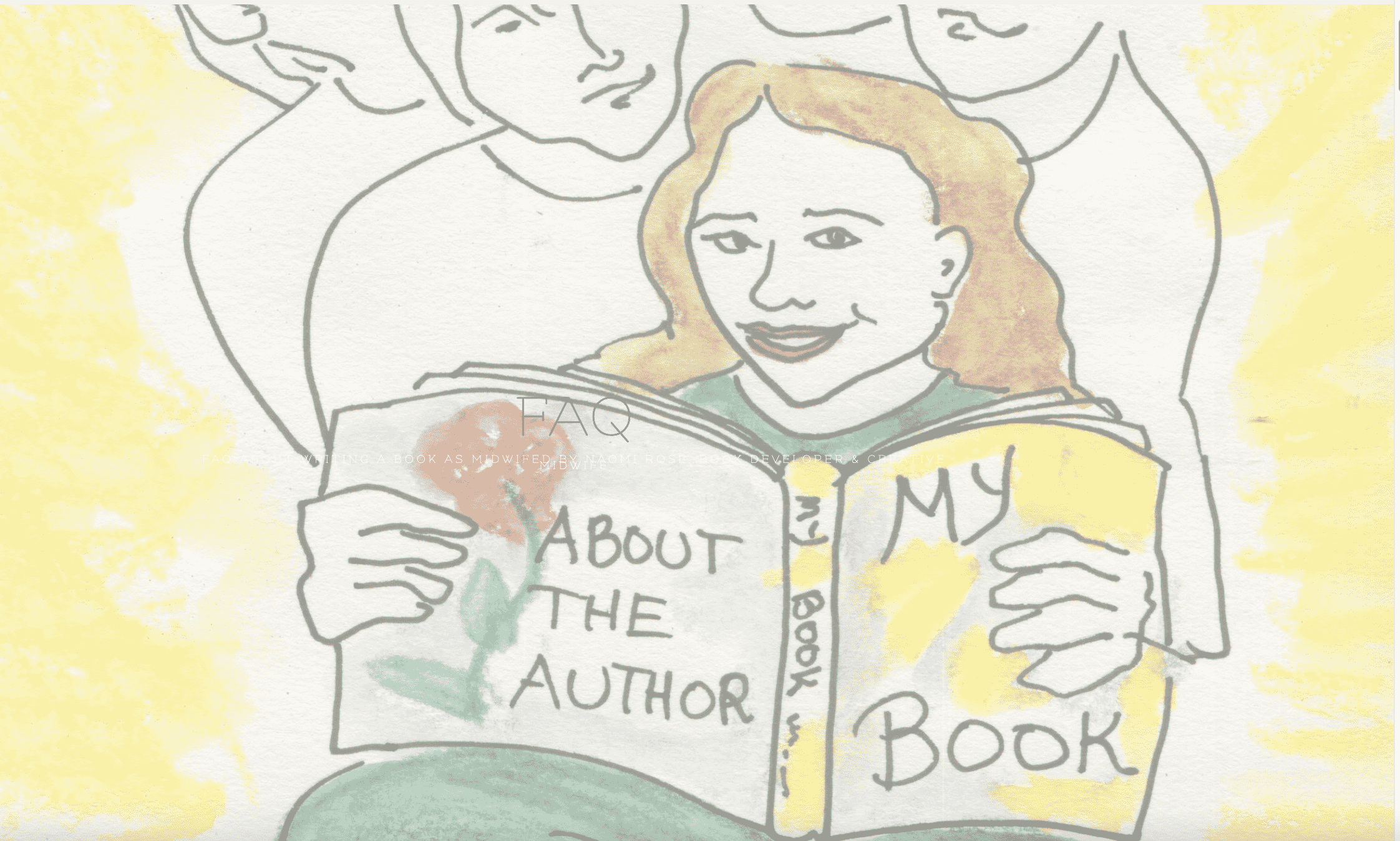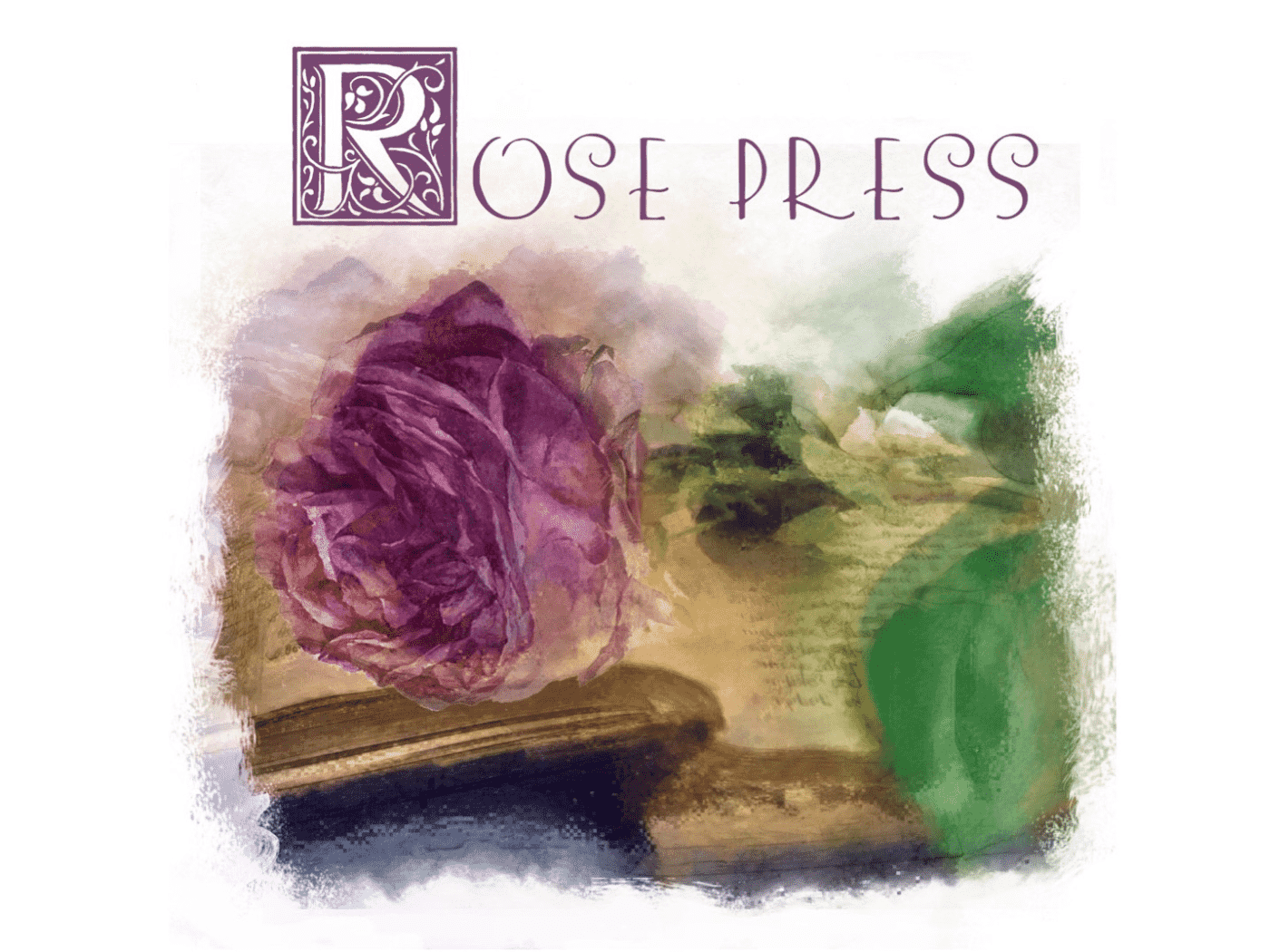Interview with Naomi Rose, Book Developer, on her work with therapists
(Originally published on “Where the Client Is: Building a Better Practice”)
Naomi Rose, MA, is an Oakland, CA-based book developer with a specialty in helping therapists write books, and the author of Starting Your Book: A Guide to Navigating the Blank Page by Attending to What’s Inside You. She talked to WTCI about her work, and why she believes it’s good for therapists to write a book.
What’s your background?
I was born into the kind of family that frequently produces a therapist,* but in addition both parents were writers, so I was exposed to literary ways of thinking and perceiving at a very young age. In that sense, I learned things osmotically that can’t be cognitively taught–about the kinds of rhythms, language, and atmospheres that can permeate a work of writing and actually transform the reader.
Later, though, I did study literature and expository writing in college and graduate school, which formed a perfect background for my 30-year career as an editor and writer working for publishers, authors, businesses, and nonprofits.
Yet the more adept I became at turning rough manuscripts into publishable books, the more it seemed to me that the social conventions regulating writing and publishing — the whole act of trying to look good on the page — was both reflective of, and actually creating, a distancing from self that simply added to the alienation that the culture as a whole suffered from.
What I wanted, both in reading and in writing a book, was to see the true-but-hidden human places mirrored and given light. When I didn’t see much of this happening in the world of publishing, I made a 180-degree turn that eventually led me to the work I do as a book developer now, and the creation of the approach that I call “Writing from the Deeper Self.”
That 180-degree turn was going to graduate school and studying clinical and transpersonal psychology, and having access to the deep richness of the vast inner world. So much goes on in a human being that is nonverbal, and this inner depth was what I wanted to see brought into the books that I had a hand in making real. These influences and realizations came together in me, and over time they coalesced into the work I am doing now.
[* And/or a writer. There was a wonderful New Yorker cartoon, years ago, showing a college student sitting at on a window seat overlooking the campus, with a pad of paper on her knees, writing a letter home. She was scowling. “Dear mom and dad,” she wrote, “thanks a lot for giving me such a happy childhood. Now I’ll never be a writer!”]
And what are you doing now?
I work with therapists as a book developer, helping them conceive, clarify, and actually write the book of their heart. The focus on heart-based writing does not preclude an intellectual approach. Mostly, it means that the book is an outgrowth of the author’s genuine passion. I have worked in many genres (e.g., self-help, non-fiction, fiction, memoir, even poetry) and formats (print books, e-books, audio books, etc.). I’m thrilled to say that some of my clients’ books are now in print, and making their way in the world, while other clients’ worthy manuscripts are still in the works-in-progress stage.
What is a Book Developer?
The “Writing from the Deeper Self” approach, which I created after my epiphany following my graduate studies in psychology, enables writing a book to be a process of deep self-discovery as well as a contribution to one’s readers. This makes the writer the center of the process, rather than someone trying to “produce” a piece of writing.
So I call myself a book developer, rather than, say, a writing coach, because when you really give attention to what’s inside the person who’s writing — when you honor who the person is, both what’s known and what’s not yet known — then something real inevitably unfolds (or “develops”).
When a person is deeply listened to and mirrored, it’s much easier for that person to know and trust what wants to be expressed, and to give that content voice in an authentic and flowing way. You can see the parallels to doing therapy, here! Except that a book is born out of this process.
You mention the parallel to the therapy process. Where does the book part come in?
Oh yes, of course I bring in my decades of professional book-creating and -producing experience to serve my therapist-clients. I provide guidance about aspects such as how to structure and organize their books, how to evoke and recognize their true writing voice, how to ensure that readers will identify with what’s on the page, and much more. By the time clients have worked with me for a few months, they usually are grounded in what they really want to say in their book and the essentials of how to go about it.
Why have you chosen therapists as your specialty?
I love the process of self-discovery that is therapists’ stock-in-trade. I know that when I work with therapists, they will be interested in, and likely writing about, some facet of the inner life that I will want to support being known through a book. I think therapists’ real calling is as healers, no matter what approaches they tend to favor; and healing is what my work is really about. In addition, therapists are naturals at the “Writing from the Deeper Self” process.
They know how to process, for one thing. They understand that the end result of a book emerges out of an unfolding process that they participate in, whereas some people might just want to “churn the product out.” And they know how to look into themselves, which in my mind is at least 50% of what goes into writing a book that truly speaks to its readership, truly heals.
Plus, of course, they understand what happens inside other people, so their range extends beyond simply their own personal experience. And therapists so often have wisdom to share — sometimes from their years of clinical practice, but also just because of who they are, the kind of person who initially decided to become a therapist to help people out of their suffering.
Why is it valuable for a therapist to write a book?
There are three basic reasons, in my view: (1) for the creative experience of writing it; (2) for career enhancement; and (3) for sharing healing wisdom with a wider population. I’ll take them one at a time:
The creative experience of writing a book: I think it can be a wonderful thing for a therapist to write a book. The therapist may not initially feel that way — most of us were raised to have issues about writing for other people — but in a way, that’s why I do the work I do. Because there is a way to write a book that does not have to reproduce the stereotypes of the tortured writer, throwing draft after draft into the trash and feeling besieged by self-doubt. That’s not to say that self-doubts don’t come; but when you are fully present to what’s in you to write, finding the words that match your inner experience becomes an absorbing, creative act — even a sacred act.
So it’s not only that it’s good to have written a book and see it in print, touching and illuminating the lives of the people who read it. It also can be good to write it — the process itself. Otherwise, you end up with a book that’s more of a “product” than a living, healing experience for the reader. When the experience of writing is alive for you, that presence shows up on the page. Just as the therapist’s full presence in the therapy session is a foundational contributor to the client’s healing, the writer’s presence in the act of writing is a great part of what heals the reader (and the writer, too). It’s a very creative, and ultimately nourishing, act.
(2) Writing a book to enhance your career and build your practice: As a therapist, having a book in print gets your name, expertise, and a sense of who you are known more widely. Being associated with your book gives you a popular credibility, a kind of magnetism. Out of this can come a broader reach of clients — that is, clients who otherwise wouldn’t know of you can discover you (especially if you include contact information–e.g., your website address — on the “About the Author” page of your book).
In addition, you gain credibility within your field. A therapeutic book for either a professional or lay readership with your name on it has clout, and you may be asked to speak and/or teach about your book’s subject at conferences, seminars, workshops, panels, and so on.
You also may be asked to contribute to anthologies, as was the case with one of my clients, Larry R. Decker, PhD, author of The Alchemy of Combat: Transforming Trauma in Combat Veterans. After publication of his book, an excerpt was included in an anthology called America on the Couch: Psychological Perspectives on American Politics and Culture, put together by psychologist Pythia Peay. Peay then interviewed Decker on the subject of his book in relation to her anthology in Psychology Today. So once your book is out there, the opportunities for getting the word out about it are many.
You can see how having a book out on the subject of your specialty would augment your being positioned as the “go to” person not only in your community, but even beyond the parameters of your geographical and relational community. So your sphere of influence becomes larger.
(3) Writing a book to relieve or transform suffering: And of course — the prime motivation for becoming a therapist in the first place — you want to relieve suffering, bring in healing perspectives, give human beings a way to become happy and live authentic, meaningful lives. So writing a book is a gift to “clients” you haven’t met in person. It takes the essence of what you care about most as a therapist, and makes it available to anyone with a $20 bill or a library card.
Does a therapist’s book have to be about his or her specialty? Can it be on something else?
No, it doesn’t; and of course, it can. A book can be a vehicle for healing in so many ways. For example, one of my clients, a retired psychotherapist named Rahima Warren, used the fantasy genre to embody her insights about the healing journey, rather than writing a cognitively framed nonfiction book. Her trilogy, The Star-Seer’s Prophecy, takes much of its material from her work with clients–the experience of abuse and its many levels of ramifications (personal, psychological, physical, and societal).
But instead of talking about the problem and the process of its healing, she dramatized it. So her readers get to have an imaginative and visceral experience, as well as (more tangentially) an intellectual understanding of what causes abuse, its impact on the psyche and spirit, and what may be involved in healing such a past.
Therapists can write any kind of book they are called to write; and if they are connected to themselves in the act of writing and following their true hearts, the book will have a kind of authenticity of being that readers will pick up on. We tend to think, when we think of therapeutic books for the lay public, of self-help books. These can be potent and helpful; yet there are more options on the menu of possibilities–for instance, memoirs, fiction, narrative nonfiction, nonfiction books that have an intimate feel. Rahima Warren’s book, originally classed as “fantasy,” is now being labeled as “visionary fiction.” Sometimes you write within a given genre, and sometimes you end up creating a new one.
The point is to hold the balance between (a) being true to yourself — what’s calling you to express something in a book; and (b) writing in a way that really reaches others. That is, to do both: please yourself and make a healing contribution to your reader. If you don’t include yourself in the population that gets to be communicated with, as you write, you have less to offer a reader. Both parties need to be served well.
The point is to hold the balance between (a) being true to yourself — what’s calling you to express something in a book — and (b) writing in a way that really reaches others.
In your experience, what tends to motivate a therapist to write a book?
You know, despite the very real advantages to a therapist’s career of writing a book, I have never yet had a therapist-client who said, “I want to write a book in order to become rich and famous.” They have always said some version of, “I want to help people. I think I have discovered something about suffering and healing, by now. I want to lighten people’s load.” When that’s the motivation, all the other aspects eventually fall into place.
Career success certainly can come from having a book in the marketplace. It’s just that, as Dr. Rachel Lacy, a Georgia-based neuro-psychologist said in her WTCI interview about becoming known for her therapeutic work: “My main message I hope to convey is … it’s about what is best for the patient. I get … the most reward from seeing people get better or providing them with a valuable service.… I want to be known as that caring doctor who a person can connect with and knows what she is doing.” It’s like that. It’s really soul-work, though it also has a commercial value.
What draws you to this work?
I want to help heal the world, too. I want people to be able to live and thrive from their deepest selves, too. By bringing my book-writing experience and my deep-listening abilities into my work with therapists, I help therapists heal to the world on a larger (but still intimate) scale. And I get to love my work.
Thinking of writing a book? Sign up for Naomi Rose’s newsletter here:
Sign up for my newsletter and discover the power of writing and healing. Let me support you in bringing the book of your heart to radiant life.
Enter your email address in the box at your left, and click “Subscribe” to join the Writing from the Deeper Self community of like-minded individuals who are committed to writing books that speak to the soul and bring about genuine healing for both writer and reader. You’ll receive expert advice and guidance, creative inspiration, in-depth content, and special offers and discounts. Let your writing be a catalyst for both personal and collective transformation.
As a thank-you, I’ll send you a free copy of my book, 10 Essential Qualities That Help You Write a Book. As these qualities become known to you and surface, they will support you abundantly to write the book of your heart and live more authentically.






